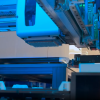CU Startup News
 The University of Colorado's Ascent Deep Tech Accelerator has announced its 2026 startup teams. The selected companies span a wide range of disciplines, reflecting the depth and breadth of innovation emerging from CU’s research enterprise.
The University of Colorado's Ascent Deep Tech Accelerator has announced its 2026 startup teams. The selected companies span a wide range of disciplines, reflecting the depth and breadth of innovation emerging from CU’s research enterprise. Destination Startup brings groundbreaking startups built on novel discoveries from top national labs and universities together with investors from throughout North America to catalyze real-world impact. This showcase demonstrates a powerful way to invest in and get funding for innovative research and translate it into impactful business ventures.
Destination Startup brings groundbreaking startups built on novel discoveries from top national labs and universities together with investors from throughout North America to catalyze real-world impact. This showcase demonstrates a powerful way to invest in and get funding for innovative research and translate it into impactful business ventures. DARPA—One research team, led by the University of Colorado Boulder, formed a startup, AtomTCAD Inc., to bring its high-accuracy thermal modeling tools directly to semiconductor designers. The newly formed company has received funding from the Colorado Office of Economic Development & International Trade, and all four members of AtomTCAD’s research team received fellowships through CU Boulder’s Ascent Deep Tech Accelerator.
DARPA—One research team, led by the University of Colorado Boulder, formed a startup, AtomTCAD Inc., to bring its high-accuracy thermal modeling tools directly to semiconductor designers. The newly formed company has received funding from the Colorado Office of Economic Development & International Trade, and all four members of AtomTCAD’s research team received fellowships through CU Boulder’s Ascent Deep Tech Accelerator. PR Newswire—Think Bioscience, a CU Boulder biotechnology spinout focused on unlocking elusive drug targets, has raised $55M in an oversubscribed Series A. Returning investors include AV8 Ventures, CU Innovations and Buff Gold Ventures.
PR Newswire—Think Bioscience, a CU Boulder biotechnology spinout focused on unlocking elusive drug targets, has raised $55M in an oversubscribed Series A. Returning investors include AV8 Ventures, CU Innovations and Buff Gold Ventures. The Cool Down—Electric vehicles are getting closer to overcoming some of their biggest challenges, and a new battery breakthrough could play a major role in making EVs more practical and appealing for drivers. Porsche-backed Group14 Technologies and New York-based Sionic Energy, a CU Boulder spinout, recently announced a major breakthrough in lithium-ion battery technology that could significantly improve EV performance.
The Cool Down—Electric vehicles are getting closer to overcoming some of their biggest challenges, and a new battery breakthrough could play a major role in making EVs more practical and appealing for drivers. Porsche-backed Group14 Technologies and New York-based Sionic Energy, a CU Boulder spinout, recently announced a major breakthrough in lithium-ion battery technology that could significantly improve EV performance. In an ongoing effort to bridge a pervasive investment gap in innovation funding, the University of Colorado Boulder has awarded pre-seed funding to Illumen Therapeutics, developing cancer treatments based on discoveries from startup co-founder Roy Parker’s lab at CU Boulder.
In an ongoing effort to bridge a pervasive investment gap in innovation funding, the University of Colorado Boulder has awarded pre-seed funding to Illumen Therapeutics, developing cancer treatments based on discoveries from startup co-founder Roy Parker’s lab at CU Boulder. The University of Colorado Boulder actively incubates and supports nonprofit and for-profit ventures with broad societal impact, from far-reaching educational and wellness tools to vaccine accessibility and water security.
The University of Colorado Boulder actively incubates and supports nonprofit and for-profit ventures with broad societal impact, from far-reaching educational and wellness tools to vaccine accessibility and water security. Launched in 2018, Destination Startup® connects investors with groundbreaking startups built on novel discoveries from leading national labs and universities in the Intermountain West. Participating startups must be actively raising and are selected through a competitive review process and robust pitch preparation.
Launched in 2018, Destination Startup® connects investors with groundbreaking startups built on novel discoveries from leading national labs and universities in the Intermountain West. Participating startups must be actively raising and are selected through a competitive review process and robust pitch preparation.- Renewable And Sustainable Energy Institute—A startup team led by RASEI Fellow Oana Luca, called Agami Zero, has just secured seed funding after winning the 2025 CU Lab Venture Challenge. Their winning idea? A new way to produce hydrogen fuel more efficiently, a key mechanism for decarbonizing our energy economy.
 BizWest—Arpeggio Biosciences, a University of Colorado startup that works in the development of pharmaceuticals, has raised about two-thirds of what it expects to collect in its latest investment offering.
BizWest—Arpeggio Biosciences, a University of Colorado startup that works in the development of pharmaceuticals, has raised about two-thirds of what it expects to collect in its latest investment offering.


